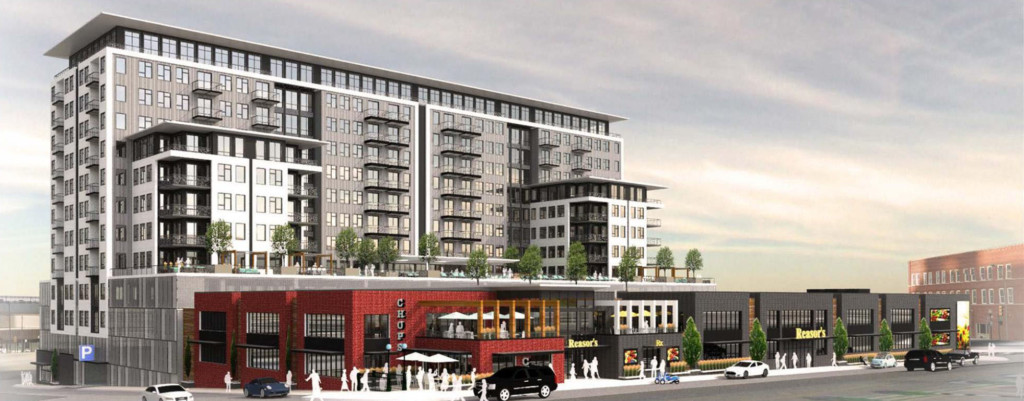
By Samuel Hardiman | Tulsa World
The Tulsa Performing Arts Center Trust has agreed to sell its parking lot for a downtown development that could include a grocery store.
The trust voted Monday on the proposed final contract to sell to Flaherty & Collins Properties, an Indianapolis-based developer, the parking lot between Second and Third streets from Cincinnati to Detroit avenues for $5.5 million.
The developer plans to build The Annex, a 12-story, mixed-use building that could feature downtown Tulsa’s first grocery store in close to two decades. It would also include more than 200 apartments and about 600 parking spaces.
A city of Tulsa news release said construction could begin next summer and be completed by 2020. However, its progress is still contingent on the developer’s securing financing and receiving a tax increment financing incentive from the city of Tulsa.
A downtown grocery store has been regarded by some as one of the hurdles that Tulsa’s resurgent downtown still has to overcome. The development could be a catalyst for more growth, according to Mayor G.T. Bynum and a downtown property owner.
“This project is a big win for our city,” Bynum said. “The sale proceeds will be used for the long-term benefit of the Tulsa Performing Arts Center, while we are also bringing a proven developer of quality projects to further enhance the vibrant experience that downtown Tulsa has become.”
Jeff Scott of Scott Realty Co. sees the project as a missing piece of the puzzle.
“There have been developers and potential residents that have waited until the grocery store question is answered. This is the answer everyone has been waiting for,” said Scott, a downtown property owner and real estate agent.
Brent Edstrom, Reasor’s chief operating officer, told the Tulsa World on Monday: “We are evaluating the entire market, as we frequently do to see what opportunities exist.”
Bynum said the city plans to move forward on the TIF review process “expeditiously” and that city economic development officials have been laying the groundwork for the TIF district while they’ve waited for the PAC Trust to approve the project.
Whether the TIF district would capture sales or property-tax revenue from the development and how long the district would be in effect are still to be decided, said Bynum.
Tax increment financing involves reserving tax revenue increases from specific areas, or districts, for improvements to public infrastructure within “project boundaries.”
